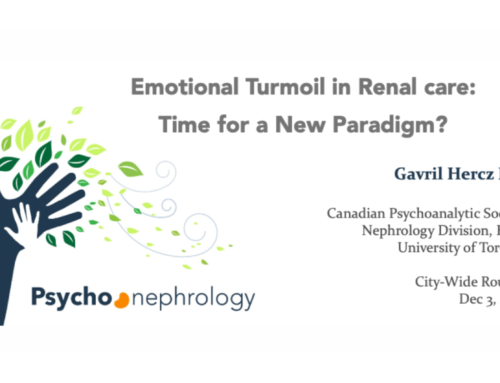
Healthy Doctor-patient relationship
“Patient: Hello doctor, I am bit worried about the swelling in my arm. It has been very painful for the last… (interrupted)
Doctor: I will send you for a test and once the results are back, my staff will contact you”
Does this conversation feel like something that you experienced during your last visit to a specialist? If your answer is affirmative, you are not alone.
Physicians are spending less and less time listening to patients about their health concerns before interrupting them. In a recent study published in the Journal of General Internal Medicine, clinicians interrupt patients, on the average, just 11 seconds after the start of the conversation. Specialists are more prone to interrupt their patients than their primary care counterparts.
“Clinicians seldom elicit the patient’s agenda; when they do, they interrupt patients sooner than previously reported. Physicians in specialty care elicited the patient’s agenda less often compared to physicians in primary care. Failure to elicit the patient’s agenda reduces the chance that clinicians will orient the priorities of a clinical encounter toward specific aspects that matter to each patient.”
We have previously published an article which touches upon aspects for physicians’ burnout and which could be one of the reasons for this interruption. Other reasons for closing the door to a meaningful encounter with a patient could be:
- Lack of time
- Lack of patience
- Already briefed by the nurse or secretary
- Inadequate interpersonal skills
- Exhaustion
- Disengaged and demotivated from the job
- Preference to closed styled/ one way communication
- Specialization means that more and more patients will come with similar problems, so assuming the diagnosis
- Distracting office settings
- Patient’s difficulty in describing the problem due to lack of knowledge, confidence, anxiety or communication
A medical consultation with a patient is the foundation for the building of a strong and trustful doctor-patient relationship. Although it may take 2 or more visits by the patient to feel comfortable, open and confident with the physician, patient listening by the physician during these visits is a requisite quality in cementing this relationship.
Communication is a two way street; making it one way will result not only in missing vital information, the consequences of which could be significant, but also a lost opportunity to build trust and patient adherence to recommended therapy. Most patients and their families, especially those with chronic or serious illness, are already battling with depression, anxiety and fear of the unknown. Interrupting them may send them deeper into their protective shell, reducing the chance to build a supportive and empathetic relationship, when it is most needed. A study from Harvard-affiliated Massachusetts General Hospital finds that improving the doctor-patient relationship can produce positive health effects.
“A good relationship fosters better communication, which improves diagnosis. It also encourages people to tell their doctors about symptoms they might not otherwise disclose,”
says the study’s lead author, Dr. John Kelley, a psychologist at Harvard-affiliated Massachusetts General Hospital.
Creating a Healthy Doctor-patient relationship
In one of our previous articles, Hello My Name is, we addressed this problem and provided some suggestions in how to provide a safe and open environment for the patients, allowing them to express their concerns so as to minimize misdiagnosis. Reflective or active listening involves being present at the moment and being mindful. Interruptions can be both verbal and non verbal, for example, ending eye contact with the patient while taking notes. Although you are trying to multi-task and may be actively listening to the patient the non-verbal cues may create a wrong impression.
A validation from the physician can go a long way in creating a positive environment in which patients will feel more open in expressing themselves better. Certainly a better patient experience is more about the quality, not the quantity, of the time shared time together. By developing better interpersonal skills, you can still see the patient within the usual time frame, while addressing all his queries/ concerns.
The physician’s approach towards a patient is to focus on diagnosing the problem/disease/discomfort and provide a solution/ treatment as early as possible. Thus in applying this highly focused skill the psychosocial needs of the patient remain unattended to. The patient is more likely to feel connected to, and motivated to work with, this physician if a true conversation has occurred during the initial consult. Those few minutes will reap many benefits down the road. Not only is the patient left feeling less anxious, more supported but also more motivated to continue adhering to the recommended treatment.
About the Author
Erika Engel
Erika Engel is an executive/life coach and therapist. She works with clients to help them increase self-awareness in order to create more choice in personal and professional pursuits and to arrive at their own definition of balance and fulfillment. She has been interested in mindfulness for a number of years and has completed a Mindfulness-Based Stress Reduction course at the Toronto Mindfulness Clinic led by Lucinda Skyes. Erika often recommends mindfulness meditation to reduce anxiety and stress for her clients.
Erika has completed the Advanced Training in Psychoanalytic Psychotherapy program at the Toronto Psychoanalytic Society. She is also a member of the Canadian Association for Psychodynamic Therapy. Erika is certified by the International Coaching Federation and is qualified by Psychometrics Canada to administer the MBTI.
A validation from the physician can go a long way in creating a positive environment in which patients will feel more open in expressing themselves better.



